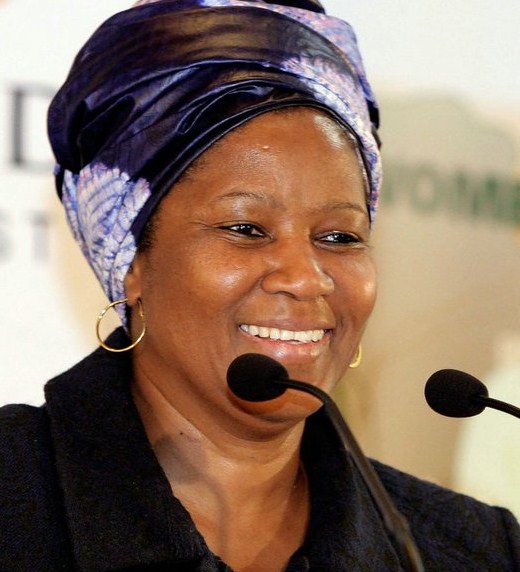Women’s advocates call for real progress

By Soumanou Salifou
The adoption in New York on Monday of a political declaration by government officials confirming their commitment to achieve gender equality by 2030 is viewed as weak by women’s advocates who also denounce the lack of transparency of the discussions leading to the adoption.
Meeting in the context of the U.N. Commission on the Status of Women (CSW) in New York on Monday after weeks of closed-door discussions, world’s leaders pledged action to fully implement laws designed to protect women’s rights and end discriminatory practices. But women’s groups from various backgrounds think the declaration does not go far enough to support the agenda to achieve gender equality. In their statement, the groups also denounce the limited involvement of civil society members in the discussions.
This year marks the 20th anniversary of the landmark fourth world conference on women held in Beijing in 1995, where 189 countries signed a plan of action that identified 12 critical areas to empower women.
“The text of the political declaration is weak and does not go far enough towards the transformative change that is needed for gender equality. We, women of the world in all our diversity, deserve much better than this,” Lydia Alpízar, executive director of the Association for Women’s Rights in Development, told member-states. She added: “We deserve that you put aside your ideological, political and religious differences and fully recognize and affirm the human rights of women and girls and gender justice. Nothing less.” Alpizar also called on governments to commit to increase funding to support gender equality.
United Nations Under-Secretary and Executive Director of U.N. Women, Phumzile Mlambo-Ngcuka, said in her opening speech to the CSW that progress towards achieving the blueprints of the Beijing platform of action adopted twenty years ago has been slow. “Serious stagnation and even regression” was evident in several areas, she pointed out. She emphasized that at the current pace of progress, it will take more than 80 years to achieve gender parity in economic participation, and 50 years to reach parity in parliamentary representation.
Mlambo-Ngcuka also called on member-state governments to better serve indigenous women, women with disabilities and women who have been marginalized because of their sexual orientation. While acknowledging that “much has been done, and much of it worthwhile,” she stated: “However, what we chose to prioritize and act on has not led to irreversible and deep-rooted change.” The U.N. official also called for a change of attitude which, she said, perpetuates the culture of male superiority by saying:
“What has not been done, however, is to change the attitudes that perpetuate the culture of male superiority and the stereotypes that diminish women. This, unfortunately, has subverted the gains that the good laws can bring. There remains an unresolved clash between the modern laws and customary laws that has robbed us of the benefits of these good laws. If we do not address this, our progress will always be compromised. This is what we have to deal with now, once and for all.”
In a statement, the International Planned Parenthood Federation said:
“The political declaration presented an opportunity to look back at what has been accomplished and look forward to the work that remains. However, although we welcome the affirmation of the Beijing declaration and platform for action and its follow up reviews, and the recognition that the full implementation of these agreements is essential to achieving sustainable development, the International Planned Parenthood Federation is disappointed that the declaration did not go further in setting an ambitious agenda for the future.”
In its attempt to build on the Beijing platform for action, the United Nations has listed the following five priority areas for change: ending discriminatory practices, reorienting macroeconomic policy to better serve women, ensuring the full and equal participation of women in decision-making at all levels, significantly increasing investments in gender equality, and strengthening accountability for gender equality and the realisation of the human rights of women and girls.
“In 2030 we want to be able to talk about a world that has achieved gender equality. A 50-50 planet,” said United Nations Under-Secretary and Executive Director of U.N. Women, Phumzile Mlambo-Ngcuka.
Irene Johnson, in New York, has contributed to this report.


